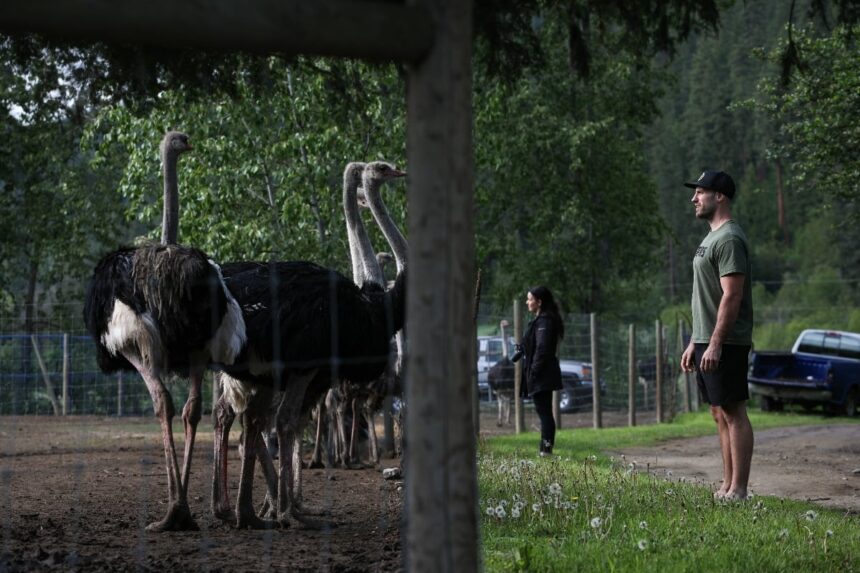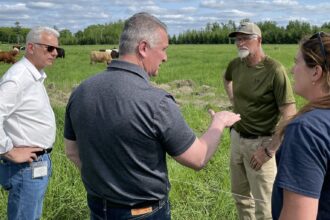In a dramatic eleventh-hour decision, the Federal Court of Canada has temporarily suspended British Columbia’s controversial ostrich culling program, which was set to begin this weekend across the province’s interior region. The emergency injunction, issued late Thursday evening, provides a reprieve for approximately 2,800 farmed ostriches that provincial authorities had targeted for destruction following the detection of a highly pathogenic avian influenza strain.
“This pause represents a crucial moment for both agricultural policy and animal welfare considerations in Canada,” said Justice Eleanor Harmon in her ruling. “The court recognizes the substantial and potentially irreversible consequences of proceeding with the cull before a full hearing on its scientific and legal merits.”
The legal challenge was mounted by the BC Specialty Bird Association and a coalition of ostrich farmers who argue that the provincial government’s decision was made without sufficient scientific evidence and proper consultation. Their appeal contends that the detected H5N1 virus variant poses minimal transmission risk in ratites compared to poultry species.
Dr. Melissa Chen, lead veterinary epidemiologist for the plaintiffs, told CO24 News that international protocols don’t necessarily mandate mass culling as the only response. “Other jurisdictions have successfully implemented quarantine and monitoring protocols for ostrich operations without resorting to complete depopulation,” Chen explained. “These birds represent millions in investment and decades of careful breeding.”
The provincial agriculture ministry had declared the cull essential to protect BC’s larger poultry industry, which contributes over $600 million annually to the provincial economy. Ministry spokesperson William Tanner expressed disappointment with the court’s decision, stating: “Every day we delay increases the potential for spread to conventional poultry operations, potentially triggering much larger economic consequences.”
The case has captured national attention as it highlights tensions between Canada’s agricultural security policies and the growing specialty farming sector. Ostrich farming has expanded significantly in BC’s interior over the past decade, with the birds primarily raised for their lean meat, leather, and feathers in what has become a $45 million industry for the province.
Industry analysts speaking to CO24 Business note that the outcome of this case could establish important precedents for how Canadian authorities balance disease management with economic considerations for emerging agricultural sectors. Compensation mechanisms for affected farmers remain another contentious point, with current programs designed primarily for conventional poultry operations.
The court has scheduled an expedited hearing for July 3rd, giving both sides two weeks to prepare their arguments. Justice Harmon emphasized that the temporary injunction “should not be interpreted as a judgment on the merits of the case, but rather ensures that irreversible action is not taken before proper judicial review.”
Meanwhile, ostrich farmers under strict biosecurity protocols continue to monitor their flocks hourly for any signs of illness. “These aren’t just livestock to us,” said Maria Kostova, who operates a 300-bird farm near Kamloops. “They’re the culmination of fifteen years of work building a sustainable agricultural business that consumers increasingly value.”
As Canada navigates increasingly complex agricultural challenges at the intersection of climate change, emerging diseases, and evolving food systems, how should we reconsider our approach to managing risks while protecting specialized farming operations that represent rural economic diversity?










